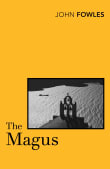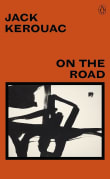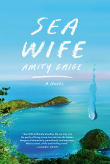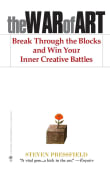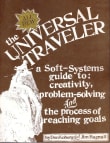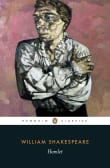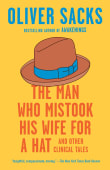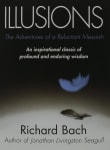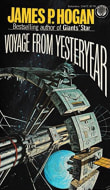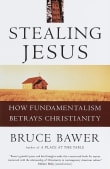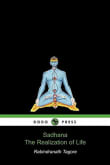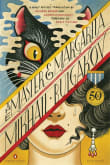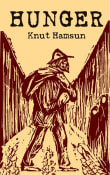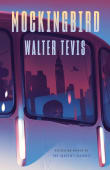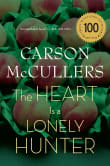Zen and the Art of Motorcycle Maintenance
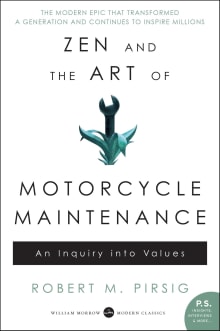
Book description
Acclaimed as one of the most exciting books in the history of American letters, this modern epic became an instant bestseller upon publication in 1974, transforming a generation and continuing to inspire millions. A narration of a summer motorcycle trip undertaken by a father and his son, the book becomes…
Why read it?
12 authors picked Zen and the Art of Motorcycle Maintenance as one of their favorite books. Why do they recommend it?

I love this book because it feels deep—it is deep—but it’s also engaging. There’s a story and characters to follow, but at its core, it’s a fascinating introduction to philosophy.
The meaning of life, the big questions, how to understand and negotiate the world. I first read it as a teenager during my gap year in Southeast Asia, and it was the perfect mental companion to the bombardment of my physical senses. Zen turned my perception of the world upside down, and I reread it occasionally.
It has one of the most memorable titles of all time, and I still…
From James' list on to take on a walking holiday.

I never found much to like in motorcycles, not until I understood how Pirsig’s attitude to motorcycles was also applicable to a fulfilled life. The full-hearted involvement of its narrator makes this an immensely beguiling and attractive book. It is challenging sometimes but very direct and convivial; in a surprising way, perhaps for a work of philosophy, it left me with a sense that navigating the 20th century (and beyond) really needn’t be so complicated.
This book, to me, increases in relevance as I hone the kind of person I am creatively. This is the honesty of Pirsig’s journey I…
From Beatrice's list on journeys of transformation, truthfully told.

Robert M. Pirsig’s Zen and the Art of Motorcycle Maintenance was first published when I was a teenager. I was aware of the book’s unforeseen popularity and countercultural reputation, but it proved too daunting for me at the time. I read it years later, after I had read Blue Highways, and was immediately enthralled with the road trip dimension of the book (Pirsig travels from Minneapolis to San Francisco on his motorcycle, accompanied by his son and some friends—not on the same motorcycle, of course). It’s a compelling journey across the austerely beautiful northern tier of the American West;…
From Stephen's list on the spirit of Jack Kerouac’s On the Road.
If you love Zen and the Art of Motorcycle Maintenance...

Robert M. Pirsig’s Zen and the Art of Motorcycle Maintenance is the very first philosophical novel I read and it was one of the first books that interested me in philosophy. This interest has followed me over the course of my life. In Zen, an unidentified protagonist (who is a stand-in for Pirsig) recounts a motorcycle trip he takes with his son. Zen is interspersed with the unidentified protagonist’s discussion of Plato, namely Plato’s dialogue Phaedrus, which is also the name given to the unidentified protagonist’s historical alter-ego: a creative writing teacher who goes insane trying to define…
From V.G.'s list on for readers who want a story to challenge them.

Not horror at all, but possibly the best and most life-changing book I’ve ever read. It combines how we perceive the world around us with examples of the author’s approach to mechanics, a deep classical understanding and maintenance of his motorcycle and why others might avoid such maintenance. Hard going but should be read by everyone.
From Paul's list on horror that doesn’t have obvious plots and endings.

In the late 1960s, the author and his son ride a motorcycle across the Northwestern United States. At first it seems like a random, rambling sort of journey, but we soon discover Pirsig is on a mission to reconcile or reunite with a dark persona from the past, a man he calls Phaedrus. Persig uses the road trip as a framing device for his harrowing mental, emotional, and philosophical journey, and he takes us through some winding passages and desperate didactic encounters along the way, building tension like a thriller while giving a discourse in philosophy, questioning the meaning of…
From Linda's list on classic literary road trips worth reading.
If you love Robert M. Pirsig...

My friend Mandy says she doesn’t believe in conspiracy theories because people aren’t that organised. Admittedly, governments have acted in lockstep recently but Robert M. Pirsig would agree with her—and if you’ve ever been stuck on hold for over an hour only to be cut off, problem unresolved, you’d agree with him! In Plato’s day, the world was mostly run by warlords with just a dash of democracy. Pirsig complains of sloppy mechanics too intent on the radio to care about his engine noise. Nowadays the world is run by precariously-employed hungover teens squinting at their drying nail varnish while…
From Alan's list on philosophical fiction.

State-enforced electric shock treatment to the brain has split the personality of the narrator into the dual-identity of Phaedrus the wolf, and the conforming alter-ego man. Based on the reality of Pirsig's own ascent/descent into either the heights of Satori freedom, or the depths of disjointed madness, depending on one's point of view, this detective story of the mind became a 1974 bestseller. Spiritual freedom, represented here, is attained by evading the splits and schisms, daring the 'modern heresy of insanity,' and merging in whichever moments one can with the All-Unifying One on the healing mountain heights usually too high…
From John's list on spiritual freedom.

I’ll be honest, this book was a hard read for me the first time through. Parts seemed to drag on and on, but the book never left my head. The ideas in it kept calling me back. Years later I decided to read it again and was shocked at how easily it read and how much I missed the first time. I am feeling a calling to read it again. To me, that is what a great book should do. If a reader closed a book cover and never thinks about that book again, the author failed. A great book…
From Will's list on that transform how we think and make us grow.
If you love Zen and the Art of Motorcycle Maintenance...

Work! It’s one of the most neglected topics in literature, and yet it’s what most of us spend our lives doing, trying to create something where there was nothing. How can we make it meaningful? Pirsig shows us that by investing ourselves in the most ordinary activities we shape the shapeless world, and ourselves, into something transcendent, if only briefly. His keyword is “quality,” by which he means the essential whatness of things: What they are is what we make of them, and in doing so, we make ourselves, in work that is never finished.
From Richard's list on meaning and mutability.
If you love Zen and the Art of Motorcycle Maintenance...
Want books like Zen and the Art of Motorcycle Maintenance?
Our community of 12,000+ authors has personally recommended 100 books like Zen and the Art of Motorcycle Maintenance.





